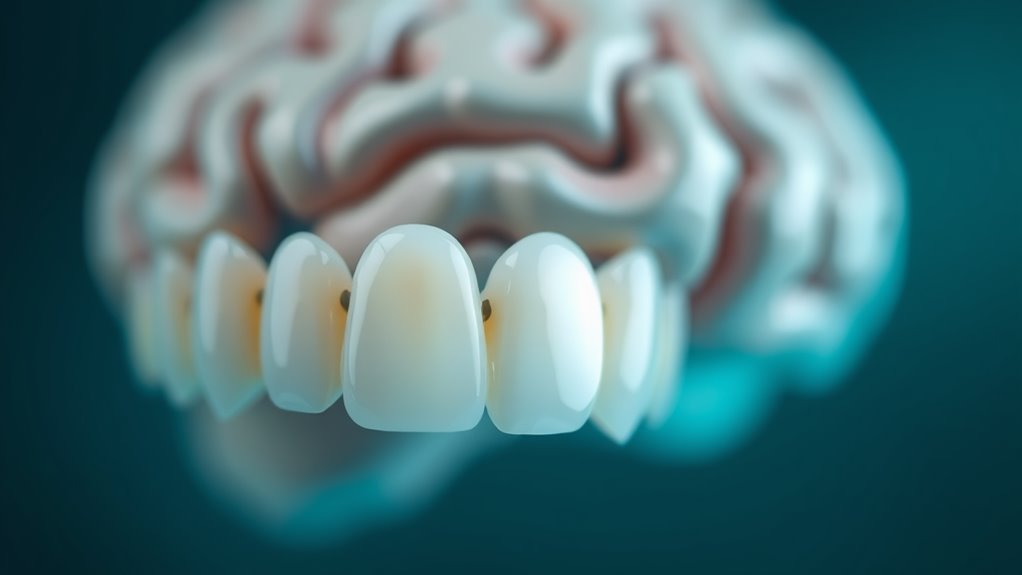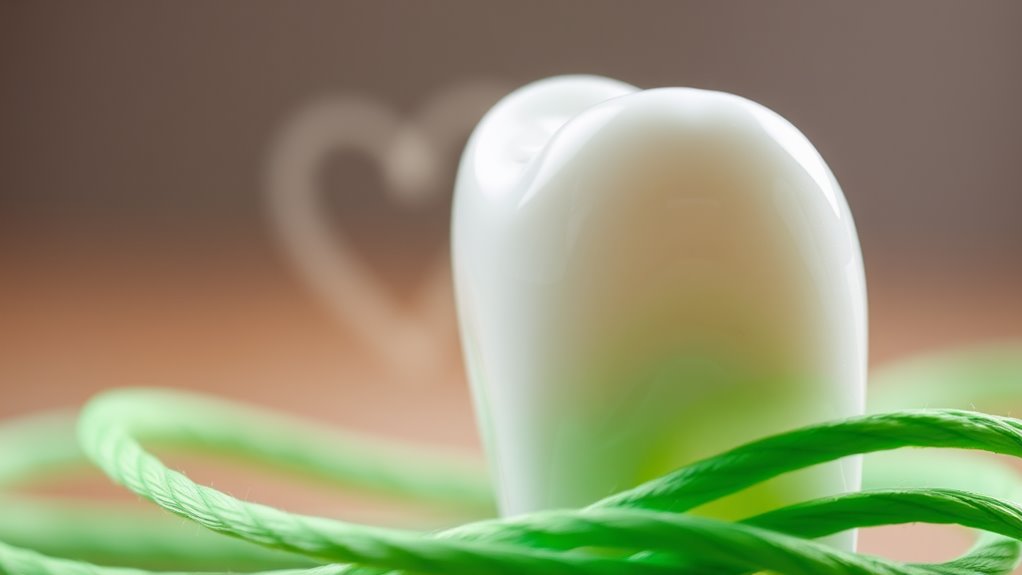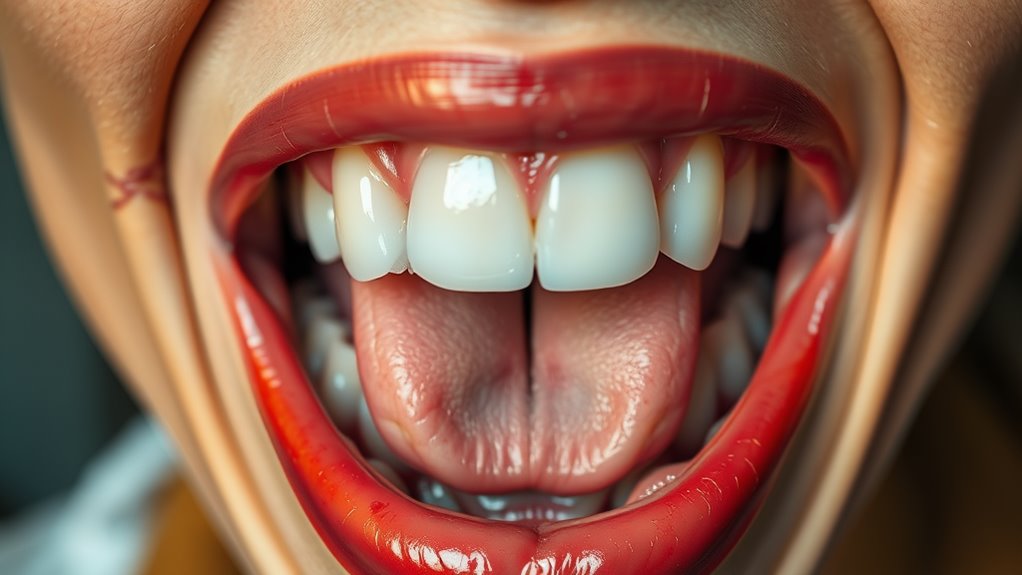Your Gut Health and Your Teeth Are More Connected Than You Think!
Your gut health directly affects your teeth and gums more than you might realize! An imbalance in gut bacteria can lead to inflammation and increase your risk of gum disease. Poor oral hygiene can let harmful bacteria enter your digestive system, causing further issues. By nurturing your gut with a balanced diet rich in fiber and probiotics, you support both your digestive and oral health. Discover how these connections work and what you can do for your wellness!
The Connection Between Gut Health and Oral Health
While many people view gut health and oral health as separate concerns, they’re actually closely intertwined. The mouth acts as the gateway to your digestive system, and what happens in your gut can directly affect your teeth and gums.
When your gut isn’t balanced, harmful bacteria can thrive. This imbalance might lead to inflammation and even gum disease. You might notice issues like bad breath, tooth decay, or sensitivity.
By nurturing your gut health, you’re also supporting your oral health. Eating fiber-rich foods, probiotics, and staying hydrated not only benefits your digestion but strengthens your teeth too.
Understanding the Gut Microbiome
The gut microbiome is a fascinating ecosystem teeming with trillions of microorganisms, including bacteria, viruses, and fungi.
These tiny inhabitants play a crucial role in your overall health and well-being. Each person’s microbiome is unique, shaped by genetics, diet, and lifestyle.
When you nurture this vibrant community with a balanced diet rich in fiber, prebiotics, and probiotics, you support its diversity and functionality. A thriving microbiome helps you digest food, absorb nutrients, and even produce essential vitamins.
It’s more than just digestion; it influences your immune system and mood too. So, when you care for your gut, you’re fostering a healthier environment that benefits your entire body, including your mouth.
How Oral Hygiene Impacts Gut Health
Good oral hygiene doesn’t just keep your teeth and gums healthy; it also plays a crucial role in maintaining a balanced gut. Neglecting your dental care can lead to harmful bacteria entering your digestive system, affecting your overall health.
Here’s how oral care impacts gut health:
-
Regular brushing eliminates plaque, reducing harmful bacteria that can travel to your gut.
-
Flossing removes food particles that may cause inflammation, keeping your mouth (and gut) more balanced.
-
Rinsing with mouthwash can help kill off unwanted bacteria, promoting a healthier digestive tract.
The Role of Inflammation in Both Systems
Inflammation acts as a common link between oral health and gut health, influencing both areas significantly. When your body encounters stressors, like poor diet or infection, inflammation can arise. This response might help at first, but chronic inflammation can lead to issues like gum disease, which, in turn, affects your gut health.
If your gums are inflamed, harmful bacteria can enter your bloodstream, potentially disrupting your gut microbiome. This connection underscores just how crucial it’s to stay mindful of both systems.
You’re part of a community that values health, and by prioritizing inflammation control, you’re not only caring for your teeth but nurturing your gut. Together, we can cultivate better health for all.
Bacterial Balance: A Key to Both Gut and Dental Health
Maintaining a balanced bacterial ecosystem is vital for both your gut and dental health.
When you nurture the right bacteria, you support overall well-being. An imbalance can lead to issues, so it’s essential to focus on these key areas:
-
Eat a diverse diet: Incorporate a variety of fruits, vegetables, and whole grains to feed beneficial bacteria.
-
Stay hydrated: Drinking plenty of water helps keep your system functioning smoothly.
-
Limit sugars and processed foods: These can encourage harmful bacteria to thrive.
Common Disorders: Linking Gut Issues and Dental Problems
When gut issues arise, they can often manifest as dental problems, highlighting the intricate connection between these two systems. Conditions like acid reflux can wear down tooth enamel, leading to sensitivity and decay.
On the flip side, poor gut health, often due to an imbalance of bacteria, can contribute to gum disease. You might experience symptoms like bad breath or swollen gums, which can be frustrating and isolating.
It’s essential to recognize that you’re not alone—many face similar struggles. By connecting these dots, you can take proactive steps to improve both your gut and dental health.
Seeking help from healthcare professionals is key, as it fosters a supportive community focused on overall well-being. You’re on the right track!
Dietary Choices for a Healthy Gut and Mouth
Eating a balanced diet can significantly impact both your gut and dental health. When you make mindful food choices, you’re supporting not just your body, but also your smile!
Here are some dietary tips to boost your gut and oral health:
-
Fiber-rich foods: Load up on fruits, vegetables, and whole grains to promote digestion and keep gums healthy.
-
Lean proteins: Incorporate options like fish, poultry, and legumes to provide essential nutrients without added sugars.
-
Healthy fats: Choose avocados, nuts, and olive oil to reduce inflammation and maintain moisture in your mouth.
Probiotics: Benefits for Both Gut and Oral Health
Probiotics offer a powerful way to enhance your gut and oral health by nurturing the beneficial bacteria that live in these systems. Incorporating probiotics into your routine can lead to a happier, healthier you. Here’s a quick look at how they work for both areas:
| Health Aspect | Gut Benefits | Oral Benefits |
|---|---|---|
| Persisters | Supports digestion | Limits harmful bacteria |
| Nutrient Boost | Enhances nutrient absorption | Strengthens teeth enamel |
| Immunity | Strengthens immune response | Reduces gum inflammation |
| Mood | Improves emotional well-being | Freshens breath |
Practical Tips for Maintaining Both Gut and Dental Health
Maintaining a healthy gut and a bright smile goes hand in hand, especially after recognizing how probiotics can benefit both areas.
You can take simple steps to nurture your gut and dental health simultaneously. Here are some practical tips to get you started:
-
Incorporate fiber-rich foods: Enjoy fruits, veggies, and whole grains; they support gut health and help prevent cavities.
-
Stay hydrated: Drinking water not only benefits your digestion but also keeps your mouth moist, reducing the risk of tooth decay.
-
Limit sugar intake: Cut back on sugary snacks and drinks. They’re a double whammy for both gut imbalance and dental issues.




